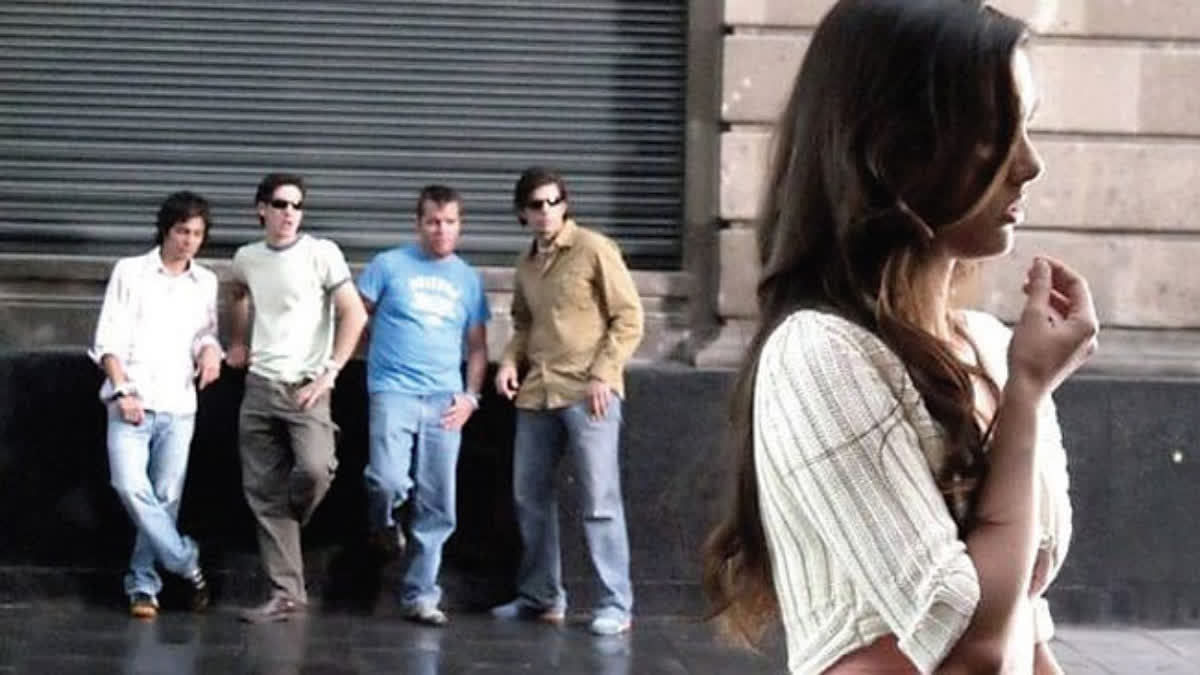Hyderabad: A recent study by researchers from the Cognitive Science Lab at the International Institute of Information Technology Hyderabad has revealed that men irrespective of their ages, tend to gaze inappropriately at women, regardless of how they are dressed. The research was presented at an international conference held last month in Rotterdam, Netherlands.
As a part of the research, the team, led by Professor Kavita Vemuri with co-researchers Ayushi Aggarwal and Sreeja Bhupathiraju visited various educational institutes across India including graduation colleges, engineering colleges and IT Institutes. They used 'eye-tracking technology' to monitor the visual attention of male IT employees as they viewed images of young women dressed in various types of clothing. The researchers also gathered emotional responses from participants to understand their perceptions.
The study found that in many public settings, such as public transport, social gatherings, and weddings, young men often looked at women inappropriately, focusing on certain body parts rather than maintaining respectful eye contact.
Contributing Factors
Professor Kavita Vemuri pointed out that several factors contribute to the increasing increasing incidents of sexual harassment of young women and girls. She identified intoxication, the increased presence of obscenity on social media, and the prevalence of item songs in movies as significant influences that shape these inappropriate behaviours. The study suggests that such cultural elements may lead young men to objectify women and view them as sexual objects, leading to harassment of both acquaintances and strangers.
Cultural and Social Insights
The study also explored societal perceptions of women based on their attire. It highlighted the strong cultural opinions in India regarding how young women should dress. The researchers found that public sympathy often varies based on the victim's attire, whether she is wearing traditional clothing like a salwar-kurta or modern attire like jeans and shirts.
Doll Experiment
To further understand the perceptions, the researchers experimented using dolls dressed in different types of clothing, such as salwars, kurtas, sarees, jeans, and shirts. They distributed these dolls to thousands of people and used 'heat map' technology to analyze where the participants' attention was focused when looking at the dolls. The results showed that most young men tended to focus on sexualised body parts in addition to the face, regardless of the type of clothing the dolls wore.
The study underscores the pervasive issue of inappropriate gaze and objectification of women in society, highlighting the need for deeper cultural change and awareness.



